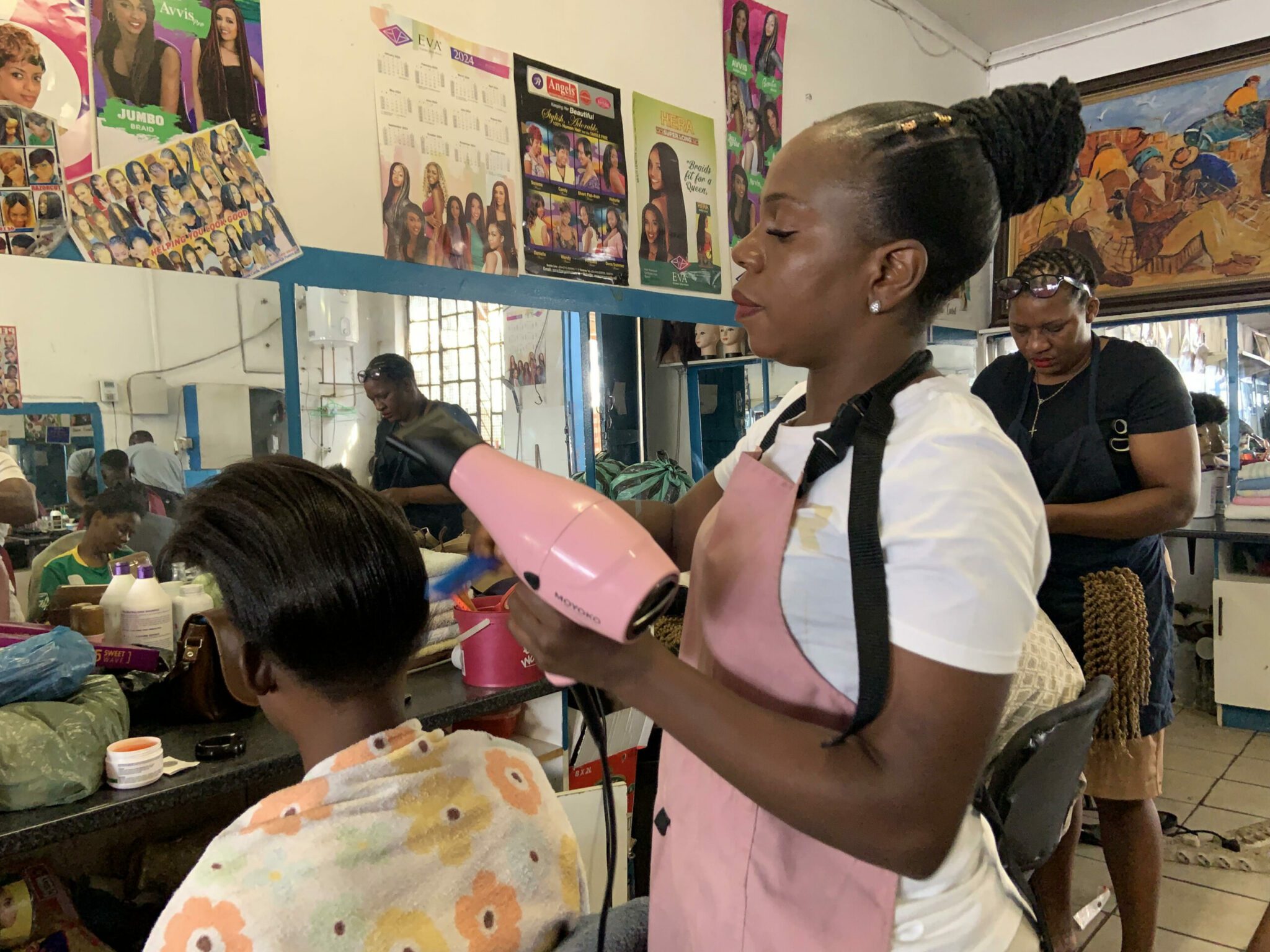As the debate over Zimbabwe’s presumptive tax continues, hairdressers in Bulawayo are appealing to the government to reconsider the tax burden on small businesses, especially those run by women in an already struggling economy.
The discontent comes in response to Finance Minister Professor Mthuli Ncube’s proposal to impose a presumptive tax on informal traders, including hairdressers, as part of the Finance (2024) Bill [H. B. 8, 2024].
This bill seeks to introduce a structured tax regime targeting small-scale operators, including hairdressing salons, which would be charged US$30 per chair per month.
Following deliberations in Parliament, the proposed tax was reduced to US$5 per chair. However, many hairdressers argue that even this reduced amount is unaffordable.
Nyasha Ndebele, a 41-year-old hairdresser who rents a chair at a Bulawayo salon, expressed her concerns, noting that she already struggles to make ends meet, paying US$150 a month for rent.
“The government should first deal with unregistered hairdressers working on street corners who charge as little as $5 because they don’t have overheads. We lose customers to them, yet we are being taxed unfairly,” she said. “The proposed tax is too much, and we simply can’t afford it.”
Ndebele also highlighted that the hairdressing industry is dominated by women, making this tax a gendered burden.
“Most of us are women, and this will force us to raise prices, but our customers are already struggling,” she added.
Charity Moyo, another hairdresser, echoed Ndebele’s sentiments, saying the proposed tax was too high for small-scale businesses. “The tax should be much lower, maybe even US$2,” she suggested.
Residents like Emmanuel Sibanda pointed out that many barbers charge between US$1 and US$2 for haircuts, especially those operating informally. “Before taxing, the government should focus on upgrading salons and barbershops,” Sibanda said.
Despite Professor Ncube’s justification for the tax, arguing that it was reduced to improve compliance, many in the industry feel it remains out of touch with the realities of the informal sector.
Ncube defended the tax, stating that informal sectors are undertaxed due to their use of cash and lack of formal registration.
Some lawmakers, such as Emakhandeni-Luveve MP Discent Bajila, warned against overtaxing small businesses. “During COVID-19, many salons and barbershops closed due to lockdowns. Overburdening them now could hurt an already fragile economy,” he said.
Pelandaba-Tshabalala MP Joe Tshuma supported the US$5 tax, arguing that it strikes a balance.
“Charging US$5 will encourage compliance, but raising it higher could lead to evasion,” Tshuma said.
However, MPs like Tsitsi Zhou from Midlands PR argued that informal salon operators should pay more, suggesting that some make significant untaxed income through savings schemes like mukando (community savings groups).

